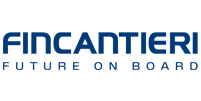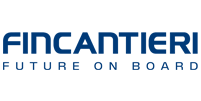We believe that the remuneration policy is a necessary tool for the pursuit of the corporate mission and strategy, for the promotion of long-term interests, for the support of the corporate sustainability path, and for maintaining high attractiveness to our talents.
It is with this in mind that we have defined for top management-Chairman, Chief Executive Officer and General Manager, Executives with Strategic Responsibilities and the other Executives with Primary Responsibilities - and for our management the Fincantieri Remuneration Policy, in line with the model and recommendations of our Code of Corporate Governance, of which a cardinal principle is equity.
The remuneration architecture, as defined in the "Report on the policy regarding remuneration and fees paid" uses uniform evaluation criteria, always guaranteeing gender equality and avoiding all forms of discrimination, and also provides for a balanced pay mix between the fixed component and the variable component. The latter is linked to predetermined and measurable performance objectives both in the short and medium to long term, as well as non-monetary benefits.
LTI Plan 2022-2024
The Long-Term Incentive (LTI) Plan 2022-2024, in addition to the already well-established performance targets of an economic-financial nature (EBITDA) and linked to share performance (Total Shareholder Return), confirmed a specific target linked to the achievement of certain sustainability performance. The latter includes, in addition to the achievement of the targets set in the Corporate Sustainability Plan for the reporting period, obtaining a specific rating from international rating agencies.
The architecture of the Plan and the definition of the targets is the result of a benchmark analysis that we carried out with the support of a leading consulting firm, the purpose of which was to align the structure of the Plan with market best practices.
In view of the results that emerged from the study carried out and the growing importance of ESG issues, an increase in the weight of the sustainability objective was planned for the LTI Plan 2022-2024, 2nd Cycle (2023-2025): it was increased from the 20% planned in Cycle I to 25% for Cycle II. At the same time, the performance bands were changed.
Management by Objectives (MBO)
To promote a culture of sustainability, we also intervened in the short-term variable compensation (MBO) system by including sustainability targets.
In 2023, the sustainability target was developed on specific Group targets concerning the sphere:
- environmental (Climate change - Reducing emissions of volatile organic compounds (VOCs) through plant interventions and by implementing a gradual replacement of products used with solvent-free or lower-solvent products);
- social (People - Developing a work environment where employees feel increasingly involved, motivated and intent on building their professional future);
- governance (Sustainable Supply Chain - Developing a Sustainable Supply Chain with the aim of integrating sustainability criteria into the supplier qualification system at the European level and to ensure adequate risk control).
In 2024, the presence of a sustainability target in the MBO of the CEO and General Manager was confirmed, the weight of which was increased from 15% to 20%. In continuity with the previous year, the target is developed on Group targets concerning Environmental (Environmental Management), Social (Health and Safety in the Workplace) and Governance (Sustainable Supply Chain).
For our blue and white collar workers, we define the structure of remuneration based on the provisions of collective bargaining agreements and supplementary company agreements, keeping it competitive with labor market standards at all times. It too consists of a fixed component and a variable component. In detail:
- the fixed component remunerates the role and, in particular, the responsibilities arising from it, taking into account, among other things, experience, the quality of the contribution made to the achievement of business results and the level of excellence with respect to the functions assigned. The fixed component is defined, in each case, to be sufficient to remunerate work performance in the event that the variable components are not or only partially paid;
- the variable component is linked to Group and individual performance objectives, predetermined and measurable, and remunerates, in the different articulations, the results achieved in the short and long term. This component makes it possible to focus people's attention and commitment to the achievement of strategic goals.
Remuneration isimplemented by principles of equity and equal treatment: salaries are consistently determined on the basis of identical assumptions and because of uniform evaluation criteria, avoiding phenomena such as the gender pay gap.
In addition, as evidence of our concrete commitment to the path of sustainability, we have introduced rewards for employees who achieve results in this area. Specifically:
- in line with the Sustainability Plan, we have included sustainability goals in the short-term variable compensation (MBO) system of the relevant personnel. These goals, in continuity with those assigned to the CEO and Central Director, represent a variable percentage between 15% and 20%;
- we introduced in 2022 of the Sustainability Bonus, an initiative implemented at the time of the renewal of the Supplementary Agreement. The Award, linked to five sustainability indicators, referring to energy consumption, water withdrawal, waste produced and emissions of volatile organic compounds, is aimed at the entire white and blue-collar population of Fincantieri S.p.A., Cetena, Isotta Fraschini Motori and Orizzonte Sistemi Navali.
Which objectives do we have on this topic?
Governance and business integrity: 2023-2027 Sustainability Plan objectives and targets
Promotion of the sustainability culture in line with the Group Values, encouraging managers to think in a sustainable manner within their sphere of action
Discover the objectives
Assignment of sustainability objectives within the corporate variable reward system
| Description/Target | Timeline | Perimeter | Status | SDGs |
|
Application of an increase to the Result Bonus and Management Objective Plan related to five annual sustainability objectives to the target population (white and blue collar workers) |
2023 |
Fincantieri S.p.A. |
As part of the renewal of the Supplementary Agreement, the Sustainability Bonus was introduced. The Bonus, linked to five sustainability indicators, is aimed at the entire white and blue-collar workforce of Fincantieri S.p.A., Cetena, Isotta Fraschini Motori and Orizzonte Sistemi Navali. |
|
|
Attribution of sustainability objectives to at least 25% of the staff (middle managers and executives) who have access to the variable reward system |
2023 |
100% of Fincantieri's MBO recipient resources have been assigned a sustainability goal. With a weight ranging between 15% and 20%. In addition, 100% of the resources of the companies pertaining to the Clusters (Electronics Cluster, Infrastructure Cluster, Furniture Cluster), Isotta Fraschini Motori and Fincantieri SI recipients of MBO were assigned a sustainability goal. |
||
|
Attribution of sustainability objectives to at least 25% of the staff with access to the variable reward system |
2024 |
Italy |
|
|
|
Attribution of sustainability objectives to the top management of foreign subsidiaries |
2023 |
Group |
Top management of foreign subsidiaries has been assigned a sustainability goal (Environmental - Climate change, Social - People, Governance - Sustainable supply chain). |



